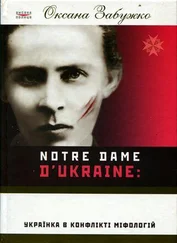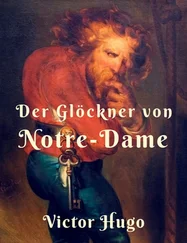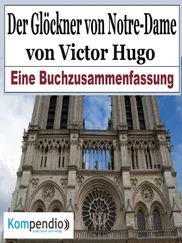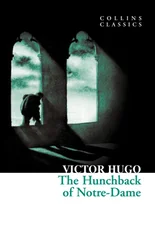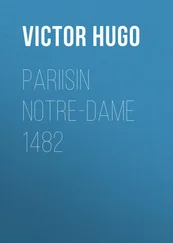Among them he recognized some: Patrice Lévêque, who looked over at his grandson with a quiet smile. Antoine Philippe Lévêque, with the face of a seriously ill man who was now free of intolerable pain. Claire Eugénie Lévêque, who had lost three sons during the breach of the Maginot Line in 1940. Geneviève Lévêque, who died at the age of seventeen of tuberculosis. Auguste Antoine Lévêque, who made his fortune importing chocolate. Patrice Olivier Lévêque, with a wig divided into three parts…
“ They will receive Communion today,” Eugène-Olivier realized. His step became more resolute.
A pile of gray rags that someone had dropped in the vestibule caught his eye. Valerie! Valerie in her rags had slid to the ground, motionless. Her light-colored curls fell on the ground. Her wounded hands—white, spread out, looked like the hands of a porcelain doll. It could not have been otherwise. She had died, together with the church!
Overcoming his fear, Eugène-Olivier bent down. Without knowing why, he moved a lock of the hair that covered her face. Although he did not touch her skin, his hand felt the warmth of her forehead. He touched her chest, which was rising, and felt her heart beating. But what was wrong with her, then?
Her breathing was even, very even. Eugène-Olivier easily lifted the sleeping child into his arms and with a sudden thought, marched briskly toward the doors, almost breaking into a run. If Father Lothaire had not chased him out, who would have saved Valerie from the fire that was only minutes away?
Jostled by his haste, Valerie opened her eyes. Her sleepy gaze briefly met his. Then the eyelids closed and the little girl sighed, finding a more comfortable position for her head on his shoulder. Never before had Eugène-Olivier seen such an ordinary, childlike gaze from Valerie. A child like any other, although very dirty, now slept in his arms.
On her hand, he found only traces of dried blood. The stigmata were gone. There were not even scabs in their place. Only some rose-colored stains remained on her white skin.
Careful not to wake her, Eugène-Olivier used his elbow and knee to open the heavy door and stepped out into the bright light of Paris: grayish blue, sunny—and echoing with gunshots.
It was a day in which, despite the blood and death, clear water murmured from the small street fountain, as always. A day in which Jeanne was somewhere nearby—alive, most certainly alive.
The timers rhythmically counted down the time remaining for the church.
The young priest continued his prayer. For the first time in her life, the old woman prayed on her knees. They both asked themselves whether they were afraid that, in the next few minutes, their souls, wrenched from their corporal frames in inconceivable, but short-lived suffering, would rise above, through the gigantic cyclone of stone and flame.
February-October 2004 Moscow-Paris-Caen-Moscow
Original title:
Елена Чудинова
Мечеть Парижской Богоматери: 2048 год
© Чудинова, Е., 2006
Translation (as Notre Dame Mosque in Paris: 2048 )
by Snežana Ivanišević de Berthet
© 2015 The Remnant
American edition edited by Duncan Maxwell Anderson, 2015
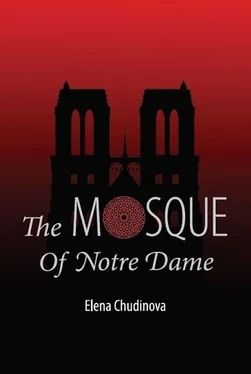

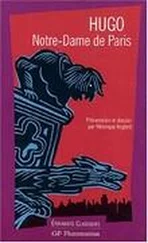
![Виктор Гюго - Собор Парижской Богоматери [Notre-Dame de Paris]](/books/30985/viktor-gyugo-sobor-parizhskoj-bogomateri-notre-thumb.webp)

